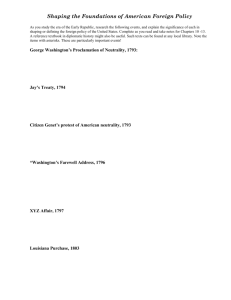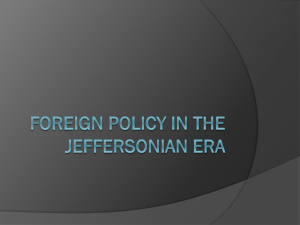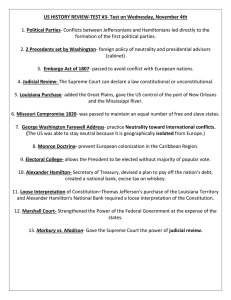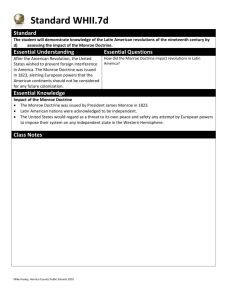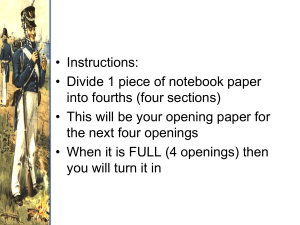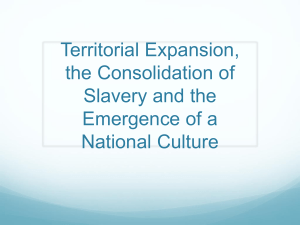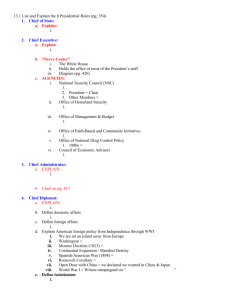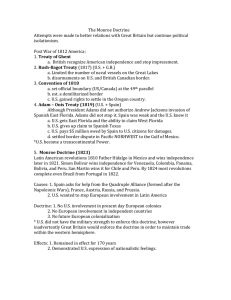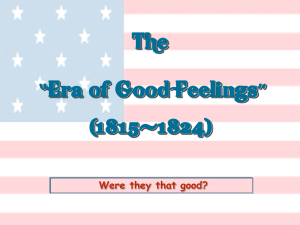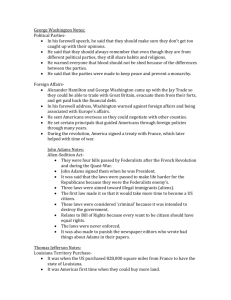Document
advertisement
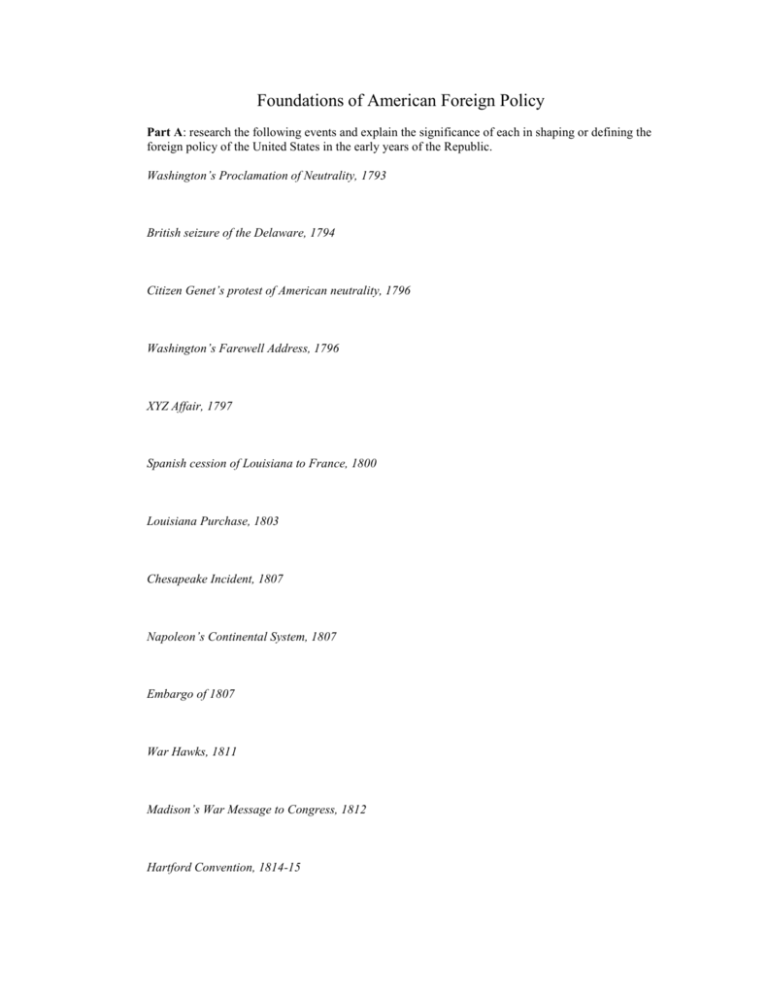
Foundations of American Foreign Policy Part A: research the following events and explain the significance of each in shaping or defining the foreign policy of the United States in the early years of the Republic. Washington’s Proclamation of Neutrality, 1793 British seizure of the Delaware, 1794 Citizen Genet’s protest of American neutrality, 1796 Washington’s Farewell Address, 1796 XYZ Affair, 1797 Spanish cession of Louisiana to France, 1800 Louisiana Purchase, 1803 Chesapeake Incident, 1807 Napoleon’s Continental System, 1807 Embargo of 1807 War Hawks, 1811 Madison’s War Message to Congress, 1812 Hartford Convention, 1814-15 Monroe Doctrine, 1823 Part B: use the completed information from above to help answer the questions below 1. Why did the US involve itself in a war with Britain and not France? 2. Why did Britain, a former enemy, propose a common policy on Latin America? 3. How was Washington’s Farewell Address applied in the Monroe Doctrine? 4. How does the foreign policy of a nation have an impact on individuals and sections of that nation? 5. The foreign policy theme of the sovereign United States has been “no permanent friends, only permanent objectives.” What were the major permanent objectives of the US foreign policy in the period 1789 – 1823? 6. To what extent is it possible to maintain an isolationist foreign policy in the contemporary era?
